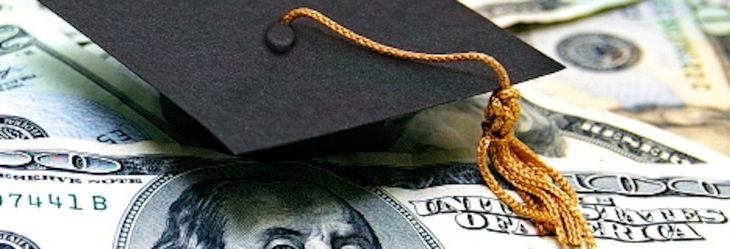Scholarship money, federal funding could help UAFS enrollment
by May 13, 2020 4:49 pm 650 views

A new scholarship program could help the University of Arkansas at Fort Smith bolster fall enrollment numbers and help stem expected budget losses, according to UAFS Chancellor Dr. Terisa Riley.
A New Transfer Student Scholarship will give transfer students with at least a 2.5 grade point average $1,000 a year for three years.
“Students who are going to school and are questioning, ‘Should I stay home?’ Yes, do that. We will take care of you,” Riley said.
Riley also dedicated more of money allotted to UAFS through the Coronavirus Aid, Relief, and Economic Security (CARES) Act to student emergency aid than required, which might help more students return to school in the fall.
UAFS received $5.511 million through the CARES Act. Of that, 50% or $2.756 million had to be directed to qualifying students as student emergency aid under regulations provided by the Department of Education. Riley elected to add $1.135 million from the other 50% of funds to student emergency aid for a total of $3.89 million.
UAFS used the following formula to distribute the funds.
• Students who lived on campus as of March 13: $1,000
• Students who received Pell Grants in spring 2020: $500
• Students who are eligible for CARES funds: $400
• Graduating seniors: $100
The Department of Education and UAFS eligibility requirements include:
• Must have FAFSA on file (or be eligible to file a FAFSA in the 2019-20 aid year);
• Must not have been enrolled in an exclusively online program prior to March 13;
• Not a concurrent or WATC (Western Arkansas Technical Center) student;
• Not a transient student;
• Not a 60+ waiver recipient; and
• Not an international or non-citizen student.
“Students who believe they may qualify but did not complete a FAFSA for the 2019-20 year may contact the dean of students, who will guide them through an application process to determine eligibility to receive funds,” said Rachel Rodemann Putman, UAFS associate director for strategic communications.
Riley said students should begin getting their disbursements within the next few days. Funds can be stacked, Riley said. And UAFS has offered students additional funds that can be requested directly through the dean of students’ office, as long as there is evidence directly relating the expense to the “disruption of campus operations due to the Coronavirus.”
“A student who qualified to receive $400, but had to purchase a laptop with additional memory and processing may provide a receipt for the $1,500 computer they had to buy and be eligible for up to $1,100 in additional funds to help cover that expense,” Putman said.
Riley said $350,000 of the student emergency aid funds were held back for summer emergency grants. Because summer classes are all on-line, students will be charged a distance education fee. The money held back can help students pay those fees, she said.
“I’ll give you a scenario: A student who gets charged $150 for a three-semester-credit-hour distance education fee for a course. ‘I didn’t want that course online. I wanted it face-to-face. Why should I have to pay that distance education fee? It wasn’t my choice.’ What they are going to get, as long as they are eligible, and we believe most of our students are, is an equivalent amount of money (from the student CARES act funds),”Riley said.
UAFS students are no different from students across the country, some of whom are asking for tuition reimbursement because their semester was not what they paid for. UAFS did not tack on a distance education fee with students moving online in the spring, which meant the university did not feel there was a justification for any tuition or fee reimbursement. Riley said students have been understanding when told what is and what isn’t being done.
“When they hear how the decisions were made, our students are so caring and loving, it absolutely resonated with them. They understood that,” Riley said.
NATIONAL ENROLLMENT SURVEYS
A Niche survey of about 70,000 high school students, enrolled college students and parents shows that 7% of high school seniors are considering not enrolling for college or deferring admission for a year because the pandemic. The survey also showed that 17% of college students are considering transferring or taking at least one semester off based on how their schools responded to COVID-19.
A study by SimpsonScarborough shows 24% of high school graduates considering 4-year college are likely to change their direction or are uncertain about going to college. Of college students polled, 20% are uncertain about their plans for re-enrolling for fall or do not plan to attend at all.
Riley noted that new freshmen numbers for the fall at UAFS look good.
“They look pretty much on par to where we were last year,” Riley said. “But we are planning for 10-15% of our continuing students not returning. We are working very hard to make sure that is not the case,” she said.
Predictions in enrollment trends suggest a 15% reduction from 2020 tuition and fees collected.
“That’s not a 15% headcount reduction but on fees we collect,” Riley said. “We are looking at a corresponding reduction in housing and dining collections.”
